Seminars
Seminars cover a broad range of research based, technical and/or artistic practice. The general topic outline is flexible as defined by the study regulations. Students are generally encouraged to attend a balanced mix of media as well as architecture seminars. Between both faculties at both universities is where the interdisciplinary nature of IMAMS really comes to light.
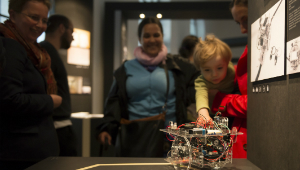
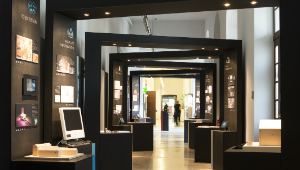
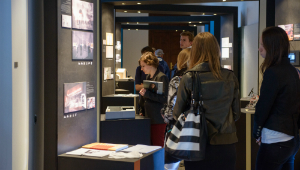
X.MediaArchitecture Summaery Exhibition l Dr. Sabine Zierold l Bauhaus-Universität Weimar l Spring 2015
Sandrah Huezo l David Heaton l Lisa Pusch et al.
10 years interdisciplinary, international and innovative. 10 years of the MediaArchitecture study program and the two double degree programs, IMAMS and IDE.
We want to show what MediaArchitecture is today, from where it evolved and what it can be in the future. Student’s master’s theses and semester projects, insights in alumni’s working worlds, and information on the history, context, and core research areas form a diverse image of the field of MediaArchitecture will demonstrate this. www.uni-weimar.de/xmediaarchitecture


ZeitZeugen l Prof. Teri Rueb l University at Buffalo l Fall 2014
Stefanie Holzheu l Ann-Kathrin Voll
We often vividly remember a particular experience or event in a particular place. But what happens when that place no longer exists or memories become lost? This site-specific project addresses the relationship between memory and place, and asks how to capture memory. It explores how an abandoned place like the Central Train Station in Buffalo exists as an actual place and how it registers as a place that we embody in us beyond the physical site itself.
While the first prototype was produced in AppFurnace, a final web-based application is on its way for a wider audience.
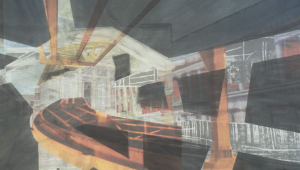
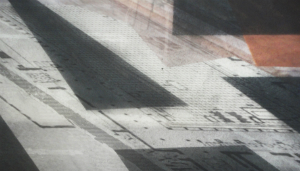
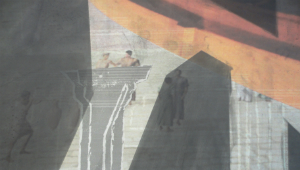
Drawing Lost Cities l Prof. Dennis Maher l University at Buffalo l Fall 2014
Lisa Pusch
This is a course devoted to experimental architectural drawing. It explores techniques and concepts of architectural drawing beyond traditional types (plan, section, and elevation, perspective), focusing especially upon hybrid forms of graphic communication. The conducted experiments will test our perceptions against unknown dimensions of experience, bridging the divide between the visible and the imaginable and proposing possibilities for architecture in the absence of absolute constraints. Throughout the course, we will adopt the tools of the archaeologist, for whom strategies of finding and uncovering are essential in the pursuit of cities that have been lost.
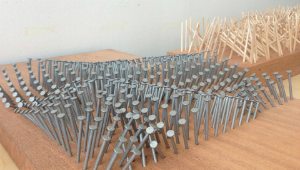
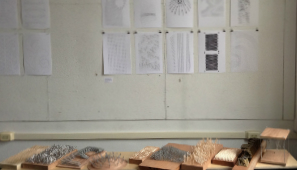
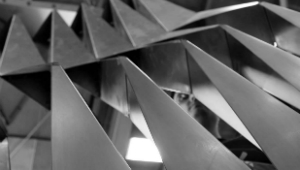
Conditional Form l Nick Bruscia l University at Buffalo l Spring 2013
Vincent Krause l Matteo Pacher
Prototyping and making, with a focus on parametric design methodologies and fabrication experimentations, students participating in this seminar created a vast amount of output. Specifically the use of the university's own 5-axis robotic drill and CNC-plasma cutter lead to diverse outcome.
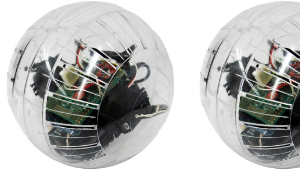
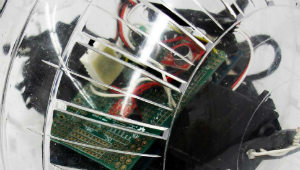
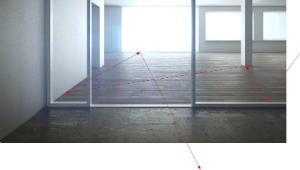
Environment Features Exploration Device l Prof. Marc Böhlen l University at Buffalo l Fall 2013
Matteo Pacher
The Environment Features Exploration Device project tries to tackle the concept of disembodied environmental perception. The idea of technology as the intermediary of perception of our environment is increasingly becoming part of our ways of perceiving. This exchange of digital information is more and more influencing how we live, and understanding its impact and meaning is getting more and more important.
The device hosts a multitude of sensors that can identify features of the surrounding environment. The data acquired by the sensors are elaborated by specific algorithms aimed to understand the space where the device is situated, and then stored online to be consulted by the users.
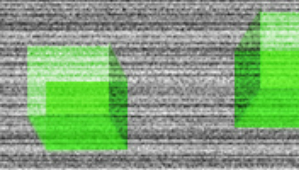
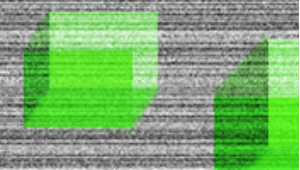
Voids of the Internet of Things l Prof. Mark Böhlen l University at Buffalo l Fall 2013
A seminar aiming at understanding the next big thing in the consumer technology industry, the Internet of Things (IoT). Through a series of experimental prototypes students approximated developed critical and artistic interventions in the voids of the IoT.
